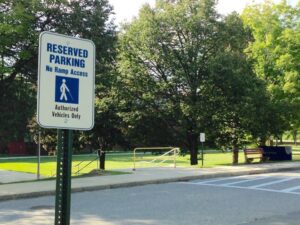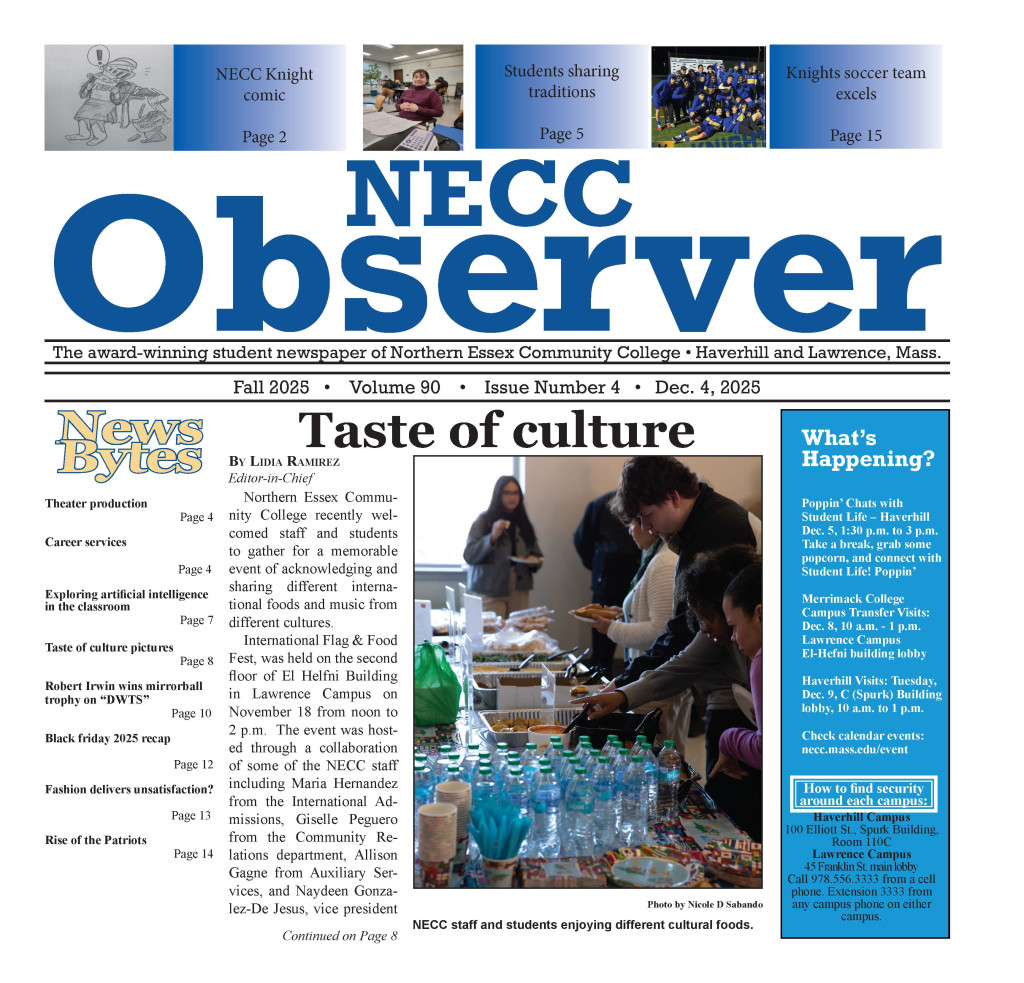Accessibility at Northern Essex has long been a hot-button issue. The outdated elevators, the cracks in the ramps, the ice and snow in the winter — it all falls under the umbrella of accessibility concerns.
With the Spurk Building being renovated this upcoming year, some may wonder what upgrades are going to be made to improve accessibility. Susan Martin, director of Learning Accommodations, is an advocate for the issue. Martin has pitched the idea of “universal design.” Universal design would make improvements with certain disabilities in mind but would benefit the community as a whole.
These ideas include higher, larger desks in the rooms that can accommodate wheelchairs. Right now, readers may notice one or two desks in the classrooms that are larger, but in Martin’s ideal world, a wheelchair would fit comfortably anywhere in the class.
Universal design also involves the ramps that anyone can use. Whether someone is using them because they are disabled, rolling a bag behind them or just tired after a long day of running to class, Martin points out that this is another positive effect of universal design.
There is an elevator in every building, with E and B sharing one where they intersect. Leading into the Hawrylciw Theater on the top floor of Spurk is a wheelchair lift. Last December, before a performance of “A Christmas Carol,” the wheelchair lift failed. The woman, and her wheelchair, had to be carried down the remaining stairs.
“I do get a few of those (complaints),” said Martin, who also explained that there are records of each complaint and the respective follow-up. When there is an undocumented issue and students voice their concerns later down the line, Martin said, “We don’t often know all of the details … If (students) have what (they) believe is an ‘access issue’ now or in the future please do not hesitate to contact Justine Caron.”
There is an Access Committee that meets just once a year to discuss accessibility concerns and improvements. Martin is a part of the committee along with previously mentioned Justine Caron, the ADA Compliance Officer on campus. The committee was founded in 1998 with the responsibility to “review, discuss and recommend items for a campus-wide access plan in compliance with the Americans with Disabilities Act (ADA) and Section 504 of the Rehabilitation Act of 1973,” according to an email from Martin.
There is a meeting to discuss the Spurk renovation plans on Oct. 8 in the Technology Center, room 103 at noon.
The Observer invites you to share your experiences with accessibility on campus. Contact Kelly at observer@necc.mass.edu.


